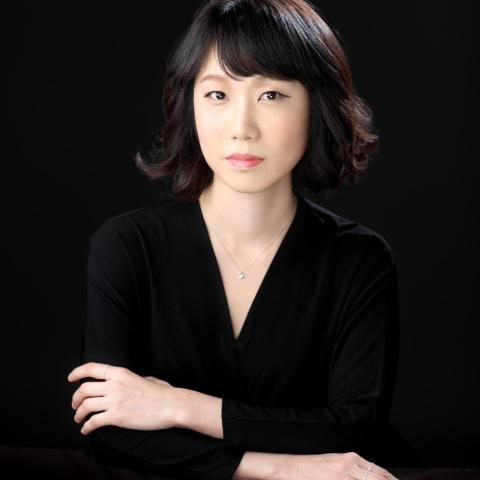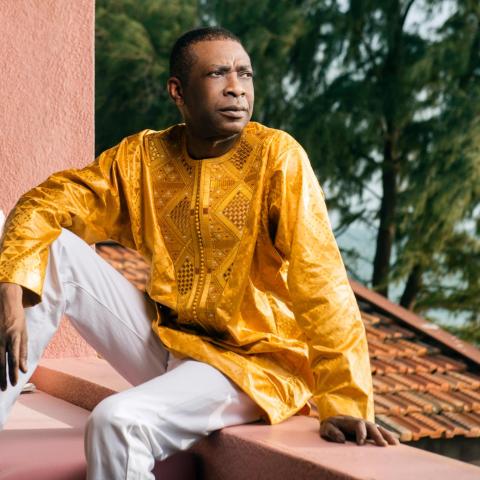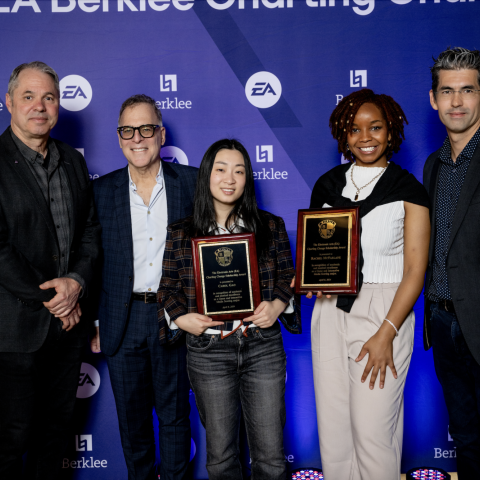Screen Scoring Students Earn Gaming Industry Nod with USC Collaboration

A still from the video game Delfini.
This fall, Berklee's Screen Scoring Department launched the game and interactive media scoring (GAIMS) major, which codified more than a decade's work building an innovative curriculum around all things game audio, from video game scoring to composing for immersive environments such as virtual reality. One of the hallmarks of the new program is the opportunity for Berklee students to collaborate with some of the country's top game design programs, gaining practical experience and networking with the up-and-coming generation of game designers in the process.
Some of these collaborations even predate the official launch of the new major. Scoring for Interactive Media, a course taught by Gina Zdanowicz, paired Berklee composers with students in the game design program at the University of Southern California (USC)—one of the premier programs of its kind in the country.
It was this partnership that produced Delfini—a new game designed by Yimeng Chen and Yuwei Lin at USC, with original score and sound design by Berklee students Dzidzor Amorin and Julian Cabrera, respectively. Amorin is a ninth-semester piano principal dual majoring in film and media scoring and contemporary writing and production with a minor in video game scoring, and Cabrera is a dual major in GAIMS and film and media scoring in his 10th semester. While this was the first project of this kind for Amorin and Cabrera, the game wasted no time gaining recognition—it was nominated for a 2022 Indiecade Award for audio design.
Below, Amorin and Cabrera discuss their experience working on Delfini, and what's next for them.
View the official trailer for Delfini:
How did the Delfini project come about for you? What was your main role?
Julian Cabrera: Delfini was a Berklee/USC collaboration project assigned to Dzidzor and me by our teacher, Gina Zdanowicz. My main role in the project was sound designer.
Dzidzor Amorin: The students from USC had to pitch their games to us, the audio teams, in a short document, and Delfini instantly caught my eye. The inviting and colorful visuals along with the overall causal direction of the game was something that appealed to me. For this project, I did all of the composition, so I was responsible for each of the music layers as the player progressed through the game.
What was that collaborative process like? Were there any challenges? And what was your favorite part of the process?
Amorin: This was my first long-term collaboration project with a game developer, so it was a lot of fun, but it also contained many challenges. One of the biggest challenges, which always comes with working with nonmusicians, was communicating musical ideas with nonmusical language, which we overcame with drawings and reference tracks. My favorite part of the process was seeing my music come together with the gameplay, with each layer pushing the sense of progress further, until the player finally fully restores the coral reef.
To be nominated for sound design on the first game I’ve ever worked on? For me, it truly validated all the hard work that I’ve put in at Berklee.
—
Cabrera: It was amazing how efficient Dzidzor was when making the score. Not only that, but our partners, Yimeng Chen and Yuwei Lin, were also fantastic to work with—there were never any issues with communication, organization, or anything like that. Every asset was finished by the due date; need for criticism felt nonexistent—the team felt like a well-oiled machine.
Personally, the only challenges I encountered were making the sounds of the dolphins. We didn’t want to use real dolphin clicks since they were a little jarring, and going pure synthesis felt a little bland. Ultimately, I ended up using my whistling as a base for the dolphins just to give it more of an organic sound. From there, I just built up the sound with various effects until we got what we have today.

Julian Cabrera
My favorite part of the process might have been the challenge I mentioned. I love problem solving, so having to go through the process of trial and error and figuring out how I was going to make the dolphin sounds was exhilarating. It especially becomes rewarding when I see the finished product and how others may enjoy the one little detail I spent hours trying to perfect.
How did it feel when you heard that Delfini had been nominated for an Indiecade award?
Cabrera: I was ecstatic! To be nominated for sound design on the first game I’ve ever worked on? For me, it truly validated all the hard work that I’ve put in at Berklee and definitely gave me a huge ego boost.
Amorin: I was over the moon to find out [about] the Indiecade award! As a music student, you're often caught up in the weeds of juggling multiple projects at the same time, so you don't really get the chance to see the results of your work until quite a ways down the road. Seeing your work get recognized, especially in such a large capacity, is always a pleasant surprise!
What other notable scoring experiences have you had? Did those help prepare you for the work you did on Delfini?

Dzidzor Amorin
Amorin: Before Delfini, I had worked on two game jams a few months prior, so I had a little bit of experience in that regard. Having the experience of working on tight deadlines as well as trying to fit a specific musical tone was an invaluable experience that I carried over to working on Delfini.
Cabrera: Like most of the film scoring students at Berklee, I’ve done numerous scoring assignments here and there. I’ve also contributed to the soundtrack and sound design of three other student games after Delfini (Tavern Crawl, Splat Cat, and Last Fair Day). Unfortunately, no scoring experience had prepared me for being the sound designer on Delfini. Before Delfini, I had some beginner-level experience with sound design in Joe Pleiman’s MTEC-280 class and received extra help from Gina Zdanowicz’s FS-371 class, but nothing else prior. Truthfully, if it weren’t for Gina and Joe’s support and expertise, I don’t think I would have been able to do what I did for Delfini.
What’s next for you as you look ahead to 2023? Any other game projects in the works that you’re at liberty to talk about?
Amorin: I'll be going into my final semester, and I will be taking the GAIMS portfolio [course], so I am sure that will bring some new game collaborations my way.
Cabrera: For 2023, I hope to finally graduate and hopefully land a sound design internship at a game company. I’m currently working with Yimeng Chen once again on her thesis project at USC. I’m also working on two other games with a small indie team in Chile, but I can’t give out much information on that at the moment.




